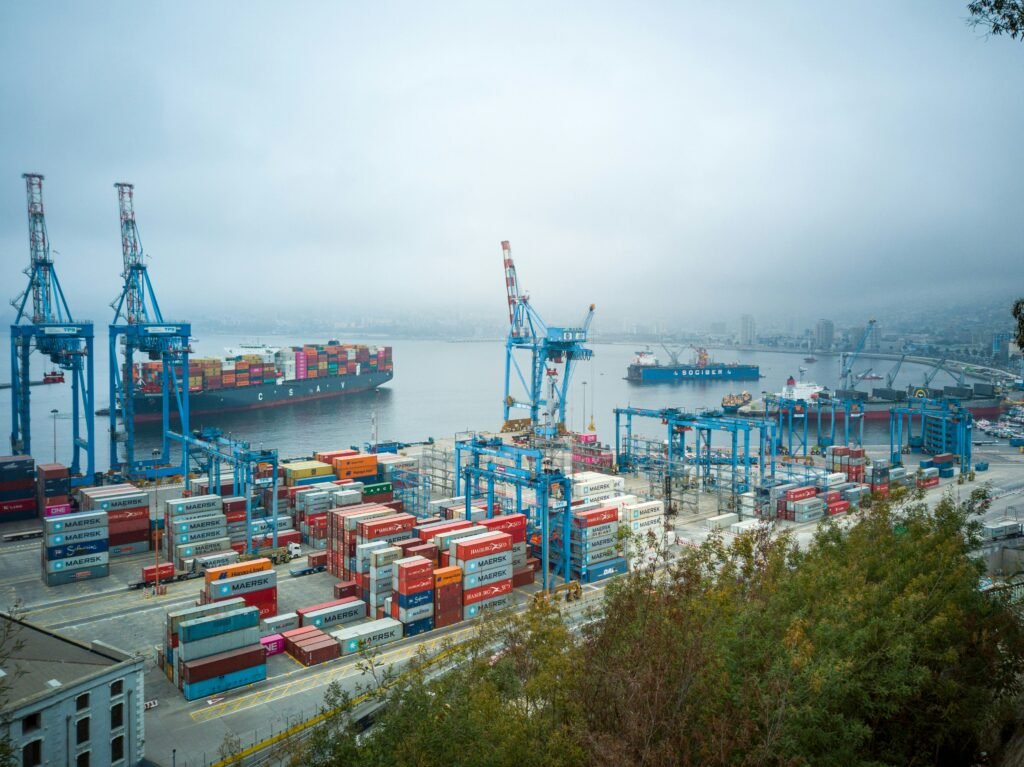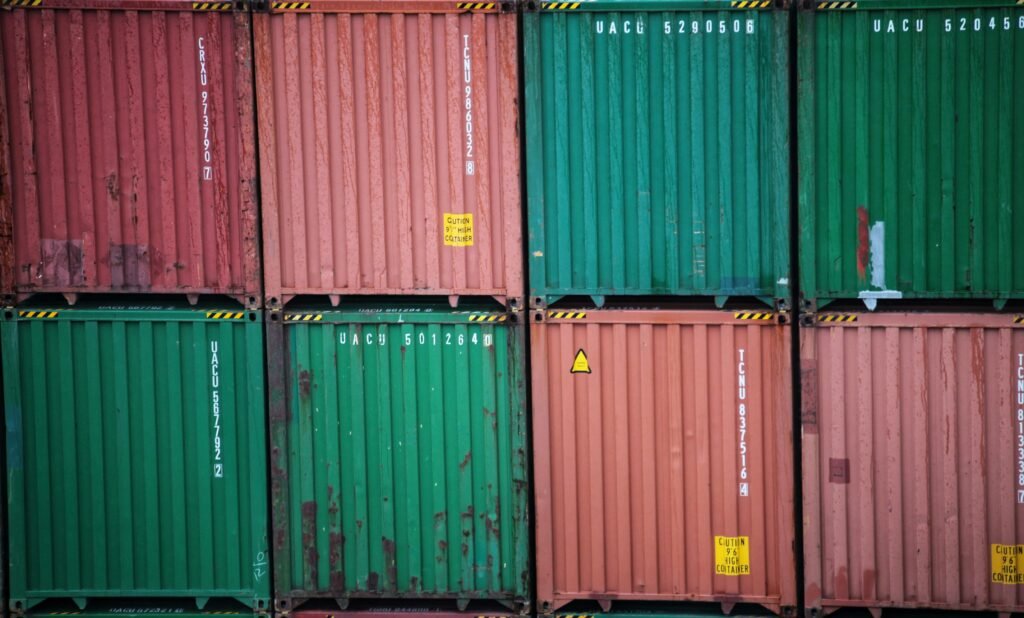In today’s increasingly eco-conscious world, it has become essential to find innovative ways to promote sustainability. One such method gaining popularity is the use of reusable containers. These containers not only contribute to reducing waste and environmental impact but also offer a convenient and cost-effective solution for individuals and businesses alike. By embracing the concept of reusable containers, we can take a significant step towards a greener future while still enjoying the benefits of practicality and efficiency.

This image is property of images.unsplash.com.
Reducing Waste
Minimizing Single-use Packaging
Minimizing single-use packaging is an essential step in reducing waste and promoting sustainability. Single-use packaging, such as plastic bags and disposable food containers, contribute significantly to the global waste problem. By opting for reusable containers, you can significantly reduce the amount of waste generated and help conserve valuable resources. Switching to reusable containers for storing and transporting food, beverages, and other everyday items can have a profound impact on reducing the waste produced in our daily lives.
Preventing Plastic Pollution
One of the major environmental challenges we face today is plastic pollution. Plastic waste, particularly single-use plastics like straws and water bottles, end up in our oceans, rivers, and landfills, causing immense harm to marine life and ecosystems. By choosing reusable containers made from sustainable materials like glass or stainless steel, you can directly contribute to preventing plastic pollution. By avoiding single-use plastics and using reusable containers, you help keep our environment clean and protect the planet for future generations.
Conserving Natural Resources
The production and disposal of single-use packaging contribute to the depletion of natural resources. By reducing waste and choosing reusable containers, you play a vital role in conserving these resources. Reusable containers are designed to be durable and long-lasting, reducing the need for constant manufacturing and resource extraction. By conserving natural resources through the use of reusable containers, you can help preserve our planet’s delicate ecosystems and ensure a sustainable future for all.
Reducing Carbon Footprint
Lowering Transportation Emissions
Transportation is a significant contributor to greenhouse gas emissions, which intensify the effects of climate change. By reducing the need for single-use packaging and promoting the use of reusable containers, you can help lower transportation emissions. Reusable containers often require less space for transportation compared to single-use packaging, allowing for more efficient use of vehicles. This reduced transportation ultimately leads to lower carbon emissions, helping combat climate change and create a more sustainable future.
Decreasing Energy Consumption
The production and disposal of single-use packaging require vast amounts of energy. By replacing single-use packaging with reusable containers, you can significantly decrease energy consumption. Reusable containers are designed to be durable and long-lasting, reducing the need for constant production and energy-intensive processes. By choosing reusable containers, you contribute to reducing the environmental impact associated with energy consumption, leading to a more sustainable and energy-efficient future.

This image is property of images.unsplash.com.
Conserving Water
Reducing Water Consumption in Manufacturing
Manufacturing single-use packaging consumes large amounts of water throughout the production process. By using reusable containers, you can help reduce water consumption. Reusable containers are designed to be used repeatedly, eliminating the need for constant manufacturing and reprocessing. This reduction in water consumption not only conserves a precious resource but also helps protect freshwater ecosystems that are vital for the survival of various species and the overall health of our planet.
Preventing Water Pollution
The production and disposal of single-use packaging contribute to water pollution. Harmful chemicals and pollutants used in the production process often find their way into water bodies, contaminating water sources and threatening the delicate balance of aquatic ecosystems. By choosing reusable containers, you actively contribute to preventing water pollution. By reducing the demand for single-use packaging, you help reduce the amount of pollution entering our water systems, ensuring cleaner and healthier water sources for all.
Preserving Biodiversity
Protecting Habitats from Deforestation
Deforestation is a grave threat to global biodiversity. By supporting companies that use sustainable materials for reusable containers, you help protect habitats threatened by deforestation. Reusable containers made from sustainable materials such as bamboo or recycled materials require less land and resources to produce, reducing the pressure on valuable ecosystems. By choosing reusable containers, you actively contribute to the preservation of diverse habitats and the protection of countless species that rely on these environments for their survival.
Minimizing Wildlife Disturbance
The production and disposal of single-use packaging can disturb wildlife and disrupt their natural behavior. For example, plastic waste often entangles and harms marine life, while deforestation for packaging materials threatens habitats of various species. By opting for reusable containers, you help minimize wildlife disturbance. These containers are designed to be durable and reduce the need for constant disposal, thus minimizing the negative impact on wildlife and promoting a harmonious coexistence with the natural world.

This image is property of images.unsplash.com.
Promoting Health and Safety
Avoiding Harmful Chemicals
Many single-use packaging materials contain harmful chemicals that can leach into food and beverages, posing a risk to human health. By using reusable containers made from safe and non-toxic materials, you can avoid exposure to these potentially harmful chemicals. Reusable containers are often made from materials like stainless steel or glass, which are known for their safety and durability. By opting for reusable containers, you prioritize your health and well-being while contributing to a more sustainable future.
Preventing Food Contamination
Single-use packaging, especially plastic containers, can contaminate food and beverages with chemicals and microplastics. By utilizing reusable containers, you can help prevent food contamination. Reusable containers are designed to be easily cleaned, reducing the risk of bacterial growth and ensuring your food remains safe and fresh. By choosing to use reusable containers, you actively contribute to promoting food safety and minimizing the risks associated with single-use packaging.
Supporting Local Economy
Encouraging Small-scale Producers
Choosing reusable containers from local small-scale producers can have a positive impact on the local economy. By supporting these producers, you contribute to the growth and sustainability of local businesses. Local production also has a smaller carbon footprint compared to goods that need to be transported over long distances. By promoting local small-scale producers, you help foster economic resilience and contribute to the well-being of your community.
Promoting Local Crafts
Reusable containers offer an opportunity to appreciate the craftsmanship and culture of your local community. By choosing reusable containers made by local artisans and craftsmen, you not only contribute to the preservation of traditional skills but also promote the uniqueness and beauty of local crafts. Supporting local crafts helps sustain cultural heritage, creates a sense of pride within the community, and fosters sustainable economic development.
Educating Consumers
Raising Awareness about Sustainability
Raising awareness about sustainability is crucial in promoting the use of reusable containers. By spreading knowledge about the environmental impacts of single-use packaging, you can inspire others to make more sustainable choices. Through conversations, social media platforms, and educational campaigns, you can help educate consumers about the importance of reducing waste and conserving resources. By sharing information and encouraging discussions, you play an essential role in building a more sustainable society.
Encouraging Responsible Consumer Choices
Consumer choices have a significant impact on the environment and our collective sustainability efforts. By encouraging responsible consumer choices, particularly regarding the use of reusable containers, you empower individuals to make a positive difference. Encourage others to consider the environmental impact of their purchasing decisions and highlight the benefits of choosing reusable containers. By promoting responsible consumer choices, you contribute to creating a more sustainable future for everyone.
Economic Benefits
Cost Savings for Individuals and Businesses
The use of reusable containers offers significant cost savings for both individuals and businesses. While the upfront cost of purchasing reusable containers may be slightly higher, the long-term benefits far outweigh the initial investment. Reusable containers are designed to be durable and long-lasting, reducing the need for frequent replacements. By eliminating the continuous spending on single-use packaging, individuals can save money in the long run. Additionally, businesses can reduce their operational costs by implementing reusable container systems, leading to increased profitability and sustainability.
Creating Green Jobs
Promoting the use of reusable containers can contribute to the creation of green jobs within sustainable industries. As the demand for reusable containers increases, so does the need for manufacturing, distribution, and recycling processes related to these containers. This increase in demand can lead to the creation of new job opportunities, especially in sectors focused on sustainable materials and practices. By supporting the use of reusable containers, you contribute to job creation and the growth of environmentally conscious industries.
Legislative Support
Implementing Regulations on Single-use Plastics
Government support and legislation play a crucial role in promoting sustainability through the use of reusable containers. By advocating for regulations that restrict or ban single-use plastics, you can actively contribute to reducing waste and promoting reusable alternatives. Government-imposed restrictions can accelerate the transition to more sustainable practices and spur innovation in the development of alternative packaging solutions. By supporting legislative efforts, you help create a sustainable framework for the future.
Incentivizing Reusable Container Use
Governments can incentivize the use of reusable containers by offering tax breaks, subsidies, or other economic benefits to individuals and businesses. By advocating for these incentives and supporting initiatives that encourage reusable container use, you contribute to creating a sustainable and supportive environment. Incentives can make the use of reusable containers more accessible and economically viable for a wider range of individuals and businesses, helping accelerate the shift towards a more sustainable society.
Building a Circular Economy
Fostering a Culture of Recycling and Reuse
Building a circular economy is crucial for long-term sustainability. By fostering a culture of recycling and reuse, we can minimize waste generation and maximize resource efficiency. Reusable containers are an integral part of this circular economy, as they can be used repeatedly, reducing the need for constant production and disposal. By actively participating in recycling initiatives and embracing the concept of reuse, you contribute to building a sustainable society that prioritizes resource conservation and environmental stewardship.
Closing the Loop on Resource Consumption
Closing the loop on resource consumption is a fundamental principle of sustainability. Reusable containers are an excellent tool for achieving this goal. By choosing reusable containers, you contribute to closing the loop by reducing the demand for new resources and minimizing waste generation. By supporting the recycling and repurposing of materials, you contribute to a sustainable cycle of resource consumption, helping create a more balanced and environmentally friendly society.
